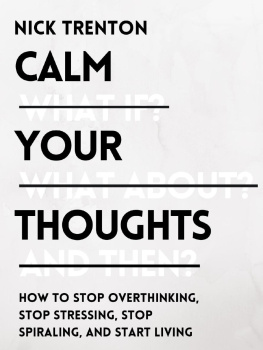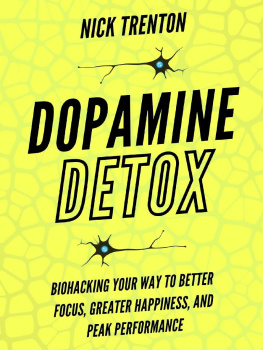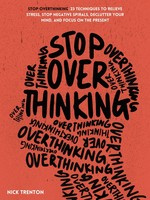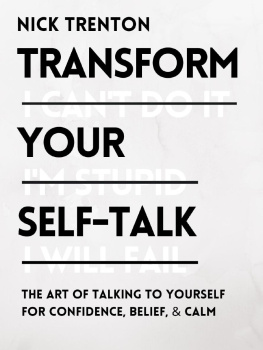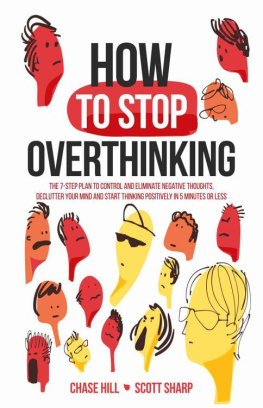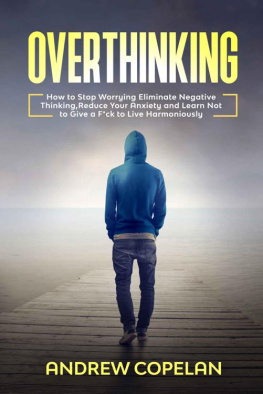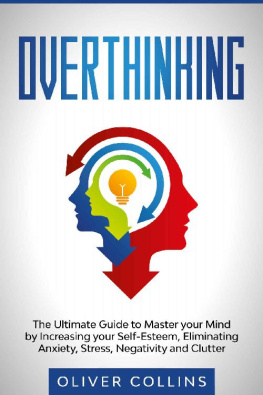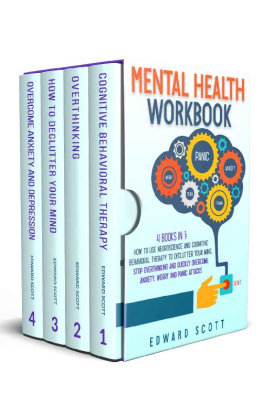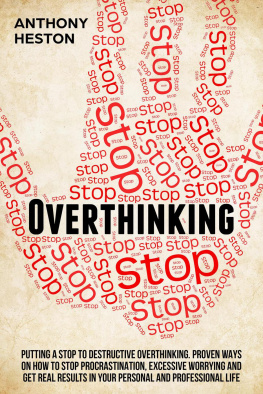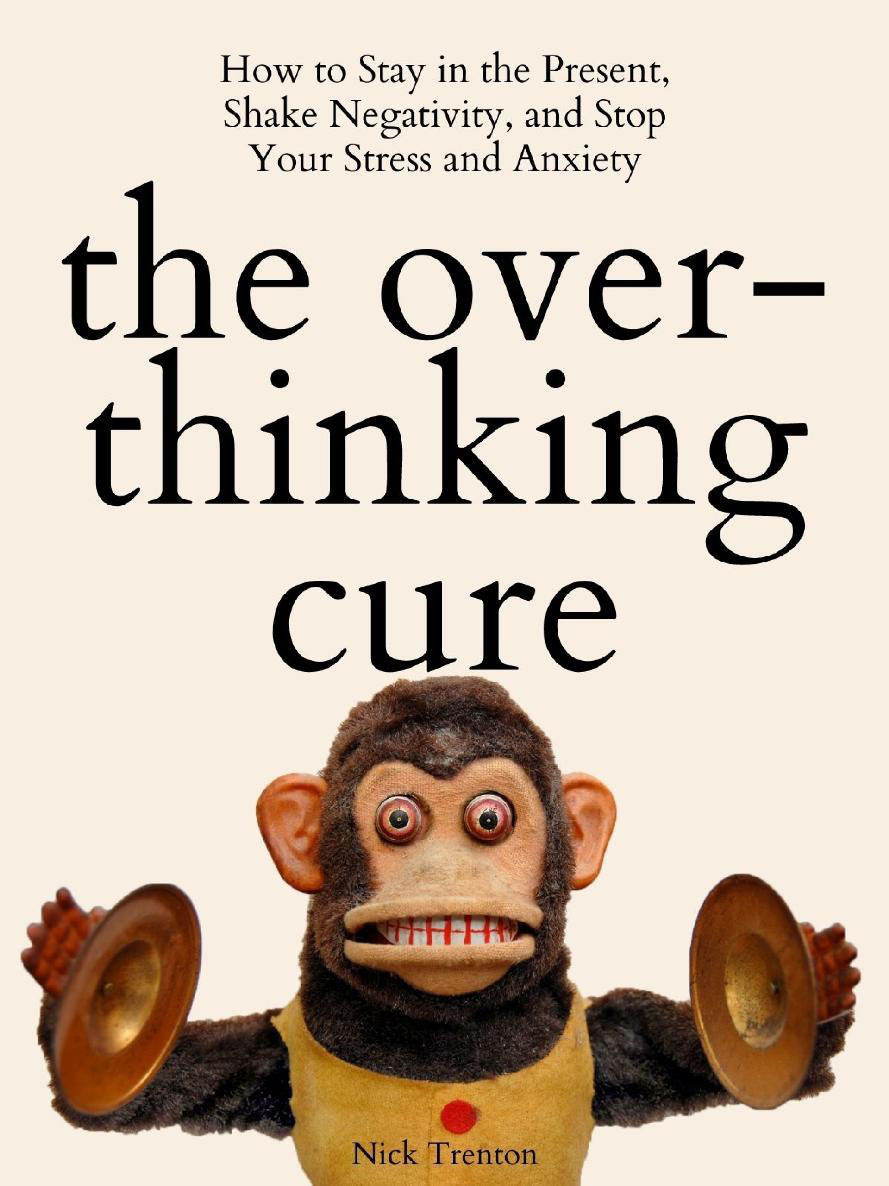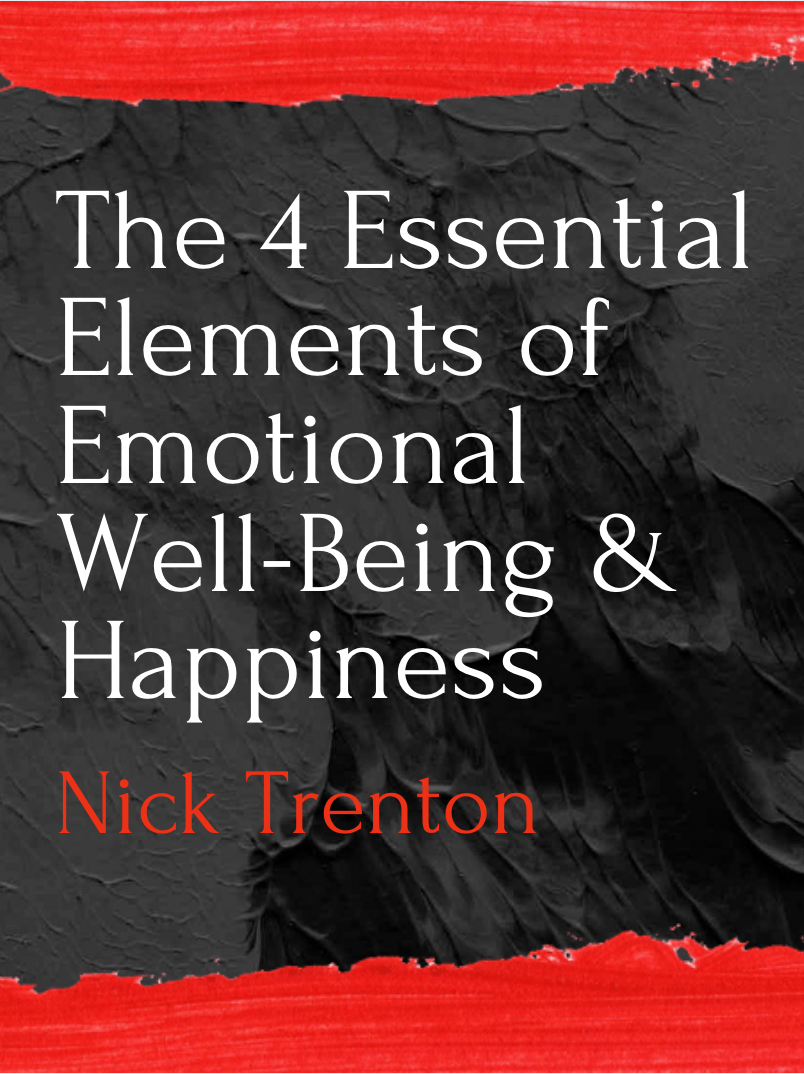Nick Trenton - The Overthinking Cure: How to Stay in the Present, Shake Negativity, and Stop Your Stress and Anxiety (The Path to Calm)
Here you can read online Nick Trenton - The Overthinking Cure: How to Stay in the Present, Shake Negativity, and Stop Your Stress and Anxiety (The Path to Calm) full text of the book (entire story) in english for free. Download pdf and epub, get meaning, cover and reviews about this ebook. year: 2021, publisher: Independently published, genre: Religion. Description of the work, (preface) as well as reviews are available. Best literature library LitArk.com created for fans of good reading and offers a wide selection of genres:
Romance novel
Science fiction
Adventure
Detective
Science
History
Home and family
Prose
Art
Politics
Computer
Non-fiction
Religion
Business
Children
Humor
Choose a favorite category and find really read worthwhile books. Enjoy immersion in the world of imagination, feel the emotions of the characters or learn something new for yourself, make an fascinating discovery.

- Book:The Overthinking Cure: How to Stay in the Present, Shake Negativity, and Stop Your Stress and Anxiety (The Path to Calm)
- Author:
- Publisher:Independently published
- Genre:
- Year:2021
- Rating:5 / 5
- Favourites:Add to favourites
- Your mark:
The Overthinking Cure: How to Stay in the Present, Shake Negativity, and Stop Your Stress and Anxiety (The Path to Calm): summary, description and annotation
We offer to read an annotation, description, summary or preface (depends on what the author of the book "The Overthinking Cure: How to Stay in the Present, Shake Negativity, and Stop Your Stress and Anxiety (The Path to Calm)" wrote himself). If you haven't found the necessary information about the book — write in the comments, we will try to find it.
A distracted and non-present mind is the biggest cause of unhappiness. It prevents us from seeing what possibilities lie before us. Life turns into a minefield rather than a set of new opportunities.
The key to a happy life is your internal dialogue. Remain your own master.
The Overthinking Cure is a book that understands where youve been through,the exhausting situation youve put yourself into, and how you lose your mind in the trap of anxiety and stress. Acclaimed author Nick Trenton will walk you through the obstacles with detailed and proven techniques to help you rewire your brain, control your thoughts, and change your mental habits.
Whats more, the book will provide you scientific approaches to completely change the way you think and feel about yourself by ending the vicious thought patterns.
Keep your thoughts from spiraling out of control.
Nick Trenton grew up in rural Illinois and is quite literally a farm boy. His best friend growing up was his trusty companion Leonard the dachshund. RIP Leonard. Eventually, he made it off the farm and obtained a BS in Economics, followed by an MA in Behavioral Psychology.
A day without worry, rumination, or anxiety. That could be yours.
-Simple ways to shift your perspective to positivity and opportunity
-The anti-anxiety superweapon of going META
-A new approach on how to destroy the toxic habit of rumination
-How to change your world one cognitive distortion at a time
-Seeing the world in shades of grey - and not black and white
Psychologically-proven tips to get out of your head and into your life.
No more self-deprecating talk. No more sleepless nights with racing thoughts. Free your mind from overthinking and achieve more, feel better, and unleash your potential. Finally be able to live in the present moment.
Nick Trenton: author's other books
Who wrote The Overthinking Cure: How to Stay in the Present, Shake Negativity, and Stop Your Stress and Anxiety (The Path to Calm)? Find out the surname, the name of the author of the book and a list of all author's works by series.

